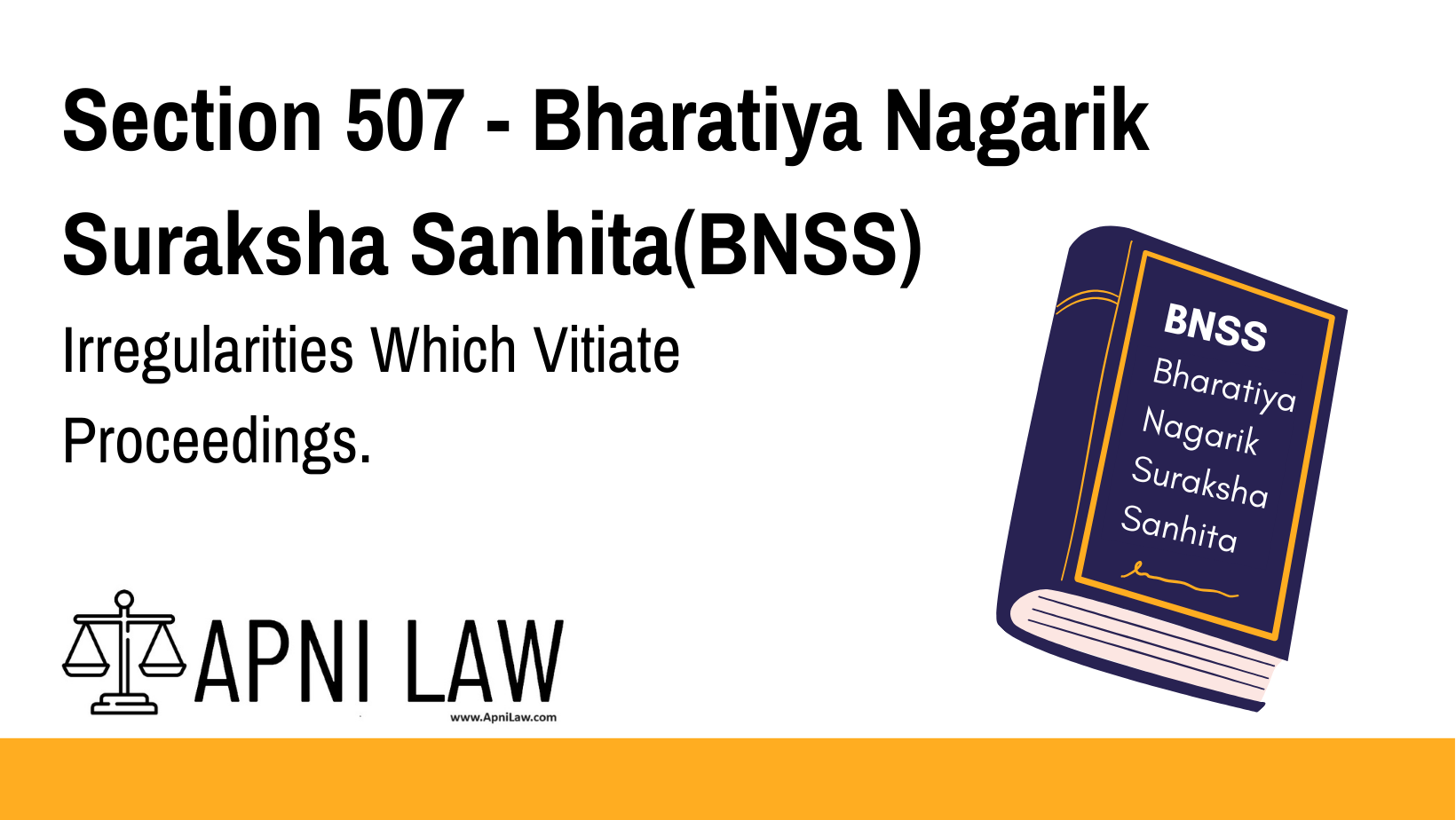Code: Section 507 BNSS
If any Magistrate, not being empowered by law in this behalf, does any of the
following things, namely:—
(a) attaches and sells property under section 85;
(b) issues a search-warrant for a document, parcel or other things in the custody
of a postal authority;
(c) demands security to keep the peace;
(d) demands security for good behaviour;
(e) discharges a person lawfully bound to be of good behaviour;
(f) cancels a bond to keep the peace;
(g) makes an order for maintenance;
(h) makes an order under section 152 as to a local nuisance;
(i) prohibits, under section 162, the repetition or continuance of a public
nuisance;
(j) makes an order under Part C or Part D of Chapter XI;
(k) takes cognizance of an offence under clause (c) of sub-section (1) of
section 210;
(l) tries an offender;
(m) tries an offender summarily;
(n) passes a sentence, under section 364, on proceedings recorded by another
Magistrate;
(o) decides an appeal;
(p) calls, under section 438, for proceedings; or
(q) revises an order passed under section 491,
his proceedings shall be void.
Explanation of Section 507 BNSS
Section 507 of the BNSS emphasizes the importance of legal authority in judicial proceedings. If a Magistrate performs any of the listed actions without proper legal empowerment, the proceedings become null and void. This section ensures that no unauthorized decisions can impact the rights of individuals or the course of justice.
Key Provisions:
- Strict Legal Boundaries: Only Magistrates with the appropriate legal authority can perform these actions.
- Void Proceedings: Any act beyond the legal power renders the proceedings invalid.
- Protection of Legal Rights: Safeguards individuals against unjust decisions made without lawful authority.
Illustration
Example 1: Unauthorized Property Attachment
A Magistrate attaches and sells property under Section 85 without the legal power to do so. Since the Magistrate lacked authority, the entire process is void, and the affected party can seek legal redress.
Example 2: Trying an Offender Without Jurisdiction
A Magistrate tries an offender without having jurisdiction over the matter. Under Section 507, this trial is considered invalid, and the case must be heard by a properly empowered court.
Common Questions and Answers on Section 507 BNSS
1. What does it mean when proceedings are “void”?
- Answer: It means the proceedings have no legal effect and are treated as if they never happened.
2. Does this section apply to mistakes made in good faith?
- Answer: No, good faith mistakes are covered under Section 506. Section 507 deals with actions beyond legal authority, regardless of intent.
3. Can a void proceeding be corrected later?
- Answer: No, once proceedings are declared void under Section 507, they cannot be validated or corrected; the case must start anew in the proper court.
4. What if a Magistrate mistakenly believes they have the authority?
- Answer: Even if the Magistrate believes they have the authority, the proceedings are still void if they act beyond their legal power.
5. Can an appeal be filed against a void proceeding?
- Answer: No, since the proceedings are void, no appeal can be filed against them. The correct course is to initiate the case in a court with proper jurisdiction.
Conclusion
Section 507 BNSS reinforces the principle of legal authority in judicial proceedings. It ensures that any act performed without proper empowerment by a Magistrate is legally ineffective, thereby protecting the rights of individuals and maintaining the integrity of the justice system.











